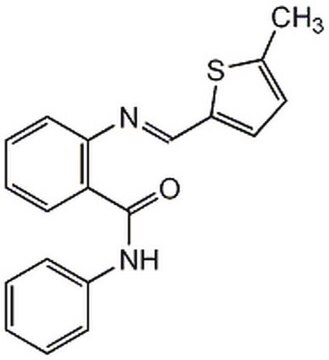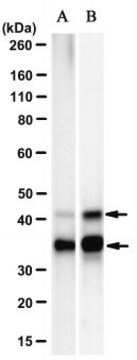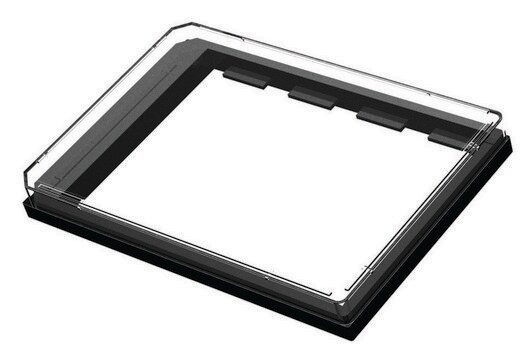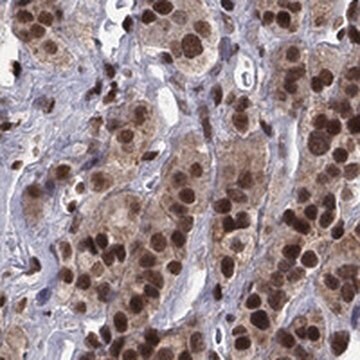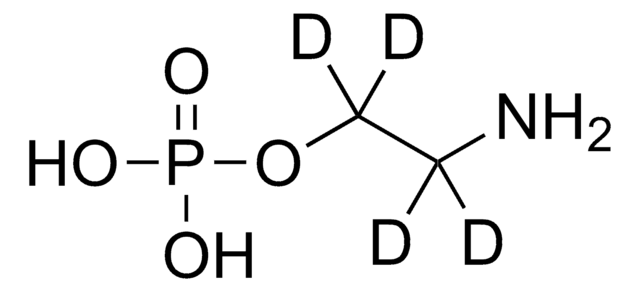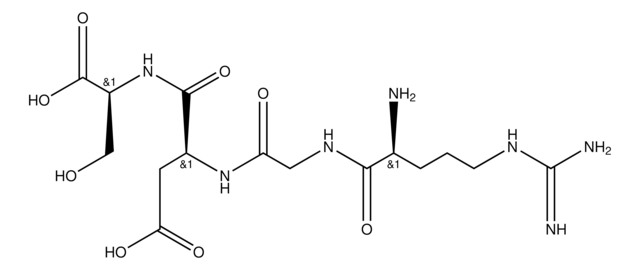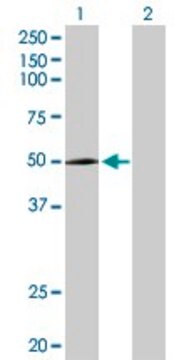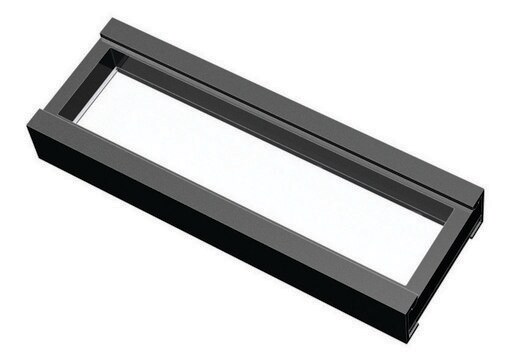Specificity
Clone 1G11 is a mouse monoclonal antibody that detects Syntaxin-5. It targets an epitope within the cytoplasmic domain in the N-terminal half. It detects both isoform 1 and 2.
Immunogen
GST-tagged recombinant fragment corresponding to 83 amino acids from the C-terminal half, SNARE motif.
Application
Quality Control TestingEvaluated by Western Blotting in Rat brain tissue lysate.Western Blotting Analysis: A 1:1,000 dilution of this antibody detected Syntaxin-5 in Rat brain tissue lysate.Tested ApplicationsWestern Blotting Analysis: A representative lot detected Syntaxin-5 in Western Blotting applications (Williams, A.L., et. al. (2004). Mol Biol Cell. 15(1):162-75).Immunocytochemistry Analysis: A representative lot detected Syntaxin-5 in Immunocytochemistry Blotting applications (Williams, A.L., et. al. (2004). Mol Biol Cell. 15(1):162-75).Note: Actual optimal working dilutions must be determined by end user as specimens, and experimental conditions may vary with the end user
Anti-Syntaxin 5, clone 1G11, Cat. No. MABS2217, is a mouse monoclonal antibody that detects Syntaxin 5 and is tested for use in Immunocytochemistry and Western Blotting.
Target description
Syntaxin-5 (UniProt: Q08851; also known as STX-5) is encoded by the Stx5 (also known as Stx5a) gene (Gene ID: 65134) in rat. Syntaxin-5 is a single-pass type IV membrane protein that localizes throughout the Golgi apparatus and is most abundant in the cis-most cisternae. It is found in the endoplasmic reticulum (ER)-Golgi intermediate compartment membrane. It has a cytoplasmic domain (aa 1-333), a transmembrane domain (aa 334-354), and a single amino acid vesicular domain (aa 355). Its expression has been reported in the brain, heart, spleen, lung, liver, kidney, and testis. Syntaxin-5 mediates ER to Golgi transport and together with vesicular transport factor p115 (USO1) and Golgi matrix protein GM130 (GOLGA2), it is involved in tethering and fusion at the cis-Golgi membrane to maintain the stacked and inter-connected structure of the Golgi apparatus. Syntaxin-5 is shown to protect cells against proteotoxicity and is involved in clearance of insoluble protein deposits. (Ref.: Babazadeh, R., et al. (2019). Cell Rep. 28(8); 2096-2110; Diao, A., et al (2008); J. Biol. Chem. 283(11); 6957-6967).
Physical form
Purified mouse monoclonal antibody IgG1 in buffer containing 0.1 M Tris-Glycine (pH 7.4), 150 mM NaCl with 0.05% sodium azide.
Storage and Stability
Stable for 1 year at +2°C to +8°C from date of receipt.
Other Notes
Concentration: Please refer to the Certificate of Analysis for the lot-specific concentration.
Disclaimer
Unless otherwise stated in our catalog or other company documentation accompanying the product(s), our products are intended for research use only and are not to be used for any other purpose, which includes but is not limited to, unauthorized commercial uses, in vitro diagnostic uses, ex vivo or in vivo therapeutic uses or any type of consumption or application to humans or animals.
